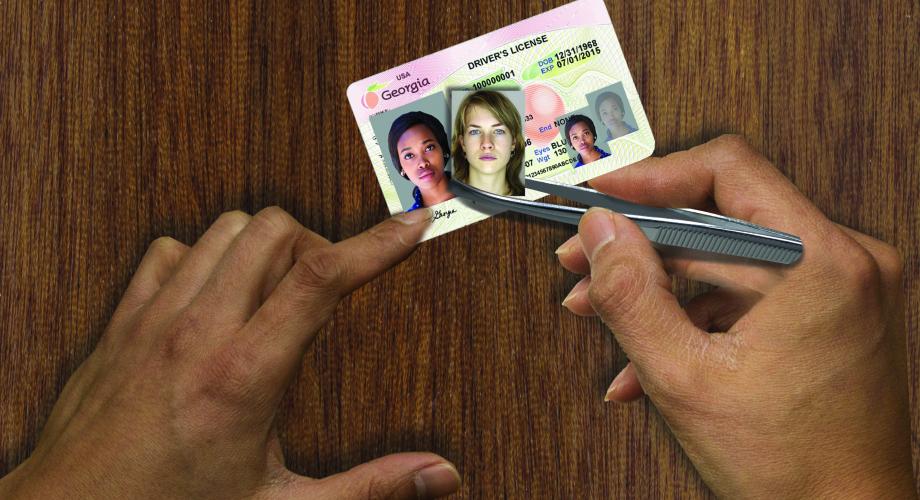Identity theft scams are alive and well in many markets nationwide, as evidenced by a recent situation in Atlanta, reported by Kelly James, CAM, a Regional Manager for R. James Properties Inc., a portfolio based in Atlanta that markets itself as appealing to moderateincome residents.
James says his situation unfolded in June at Centra Villa Apartments and involved a woman who applied for an apartment under the name Mary Smith (actual resident names in this story were changed for privacy). She was approved with a 650 credit score and presented what proved to be fake check stubs and a fake driver’s license. James says Smith’s license had a photo that matched the applicant, but that it included information from another authentic Georgia state driver’s license.
This applicant moved in shortly thereafter, at which time James received a call from a woman named Laney Worden, who informed James that the woman who had moved in under the name Mary Smith was actually named Jane Doe.
Doe’s sister, James says, is Jane Roe, and she is currently residing in the apartment with Doe as an unauthorized occupant. The sisters have been arrested numerous times, based on James’ online research. Jane Roe was listed as emergency contact on the application.
James says that Worden advised him that these two women have numerous fake identities. James was able to find the real Mary Smith’s contact information and verified the identity. He, Worden and the Centra Villa property manager then went to the Zone 4 police department and filed a police report against Jane Doe and Jane Roe for identity theft.
The Knock at the Door
James says the police told him that they would issue a warrant ASAP and come back to arrest the fraudulent renters.
James says before the police were notified, he knocked on the residents’ door and told Jane Roe that he was aware that they had stolen someone’s identity to move in, and that he was planning to take the steps needed to have them arrested.
“You’d think that would scare them into leaving, but they are still there,” James said later that week [June 4].
On June 17, the identity thief was arrested and was released on signature bond the next day, James says. He adds that neither she nor her unauthorized occupants have come back to his property, although numerous belongings were left in the apartment.
“We are simply waiting for the marshals to execute the writ of eviction rather than taking possession of the apartment,” says James.
“Sadly, my guess is that these folks have already moved in to another apartment community in our area, quite possibly under another false identity,” says James.
His prediction is based on the fact that the manager of Centra Villa recently saw them at a local gas station.
A fellow Atlanta-area apartment owner Brent Sobol says he has experienced such a scam, too. Sobol says that persons (potential residents) are legally able to purchase “stolen” pay stubs through local and online “papermills.” These stubs are not hard to come by, Sobol says, as he recently confiscated a sign hanging on a street corner in his area advertising such.
Crime Does ‘Pay’
Sobol says a crime does not occur until the person fraudulently uses the “fake” pay stub in transactions such as when filling out a rental application. Sobol says he, too, has contacted the police about residents who had used fake identities and those residents were arrested.
In October 2012, Sobol wrote “How To Spot a Fake” for units Magazine that lists 27 things “street savvy” apartment managers should be aware of when screening applicants. “I still get a call every month or so about it from someone who comes across my post,” Sobol says. “They tell me, ‘That was my experience, too!’ or, ‘I had no idea people were actually doing that. Thank you!’”
Sobol, who periodically travels around the country to speak about crime prevention, says he realizes this problem is everywhere—and not just in Atlanta’s Zone 4 area—in which Sobol and James operate properties.
“As Americans in an increasingly crazed society, we all want to be told what we want to hear, all the time,” Sobol says, “even if it means being lied to. So, most managers just accept the paper that is in front of them to keep their occupancy high—-and do not realize the nearsightedness of this attitude.”
Sobol said in early June that he dialed the number listed on the sign he confiscated and it still works.
